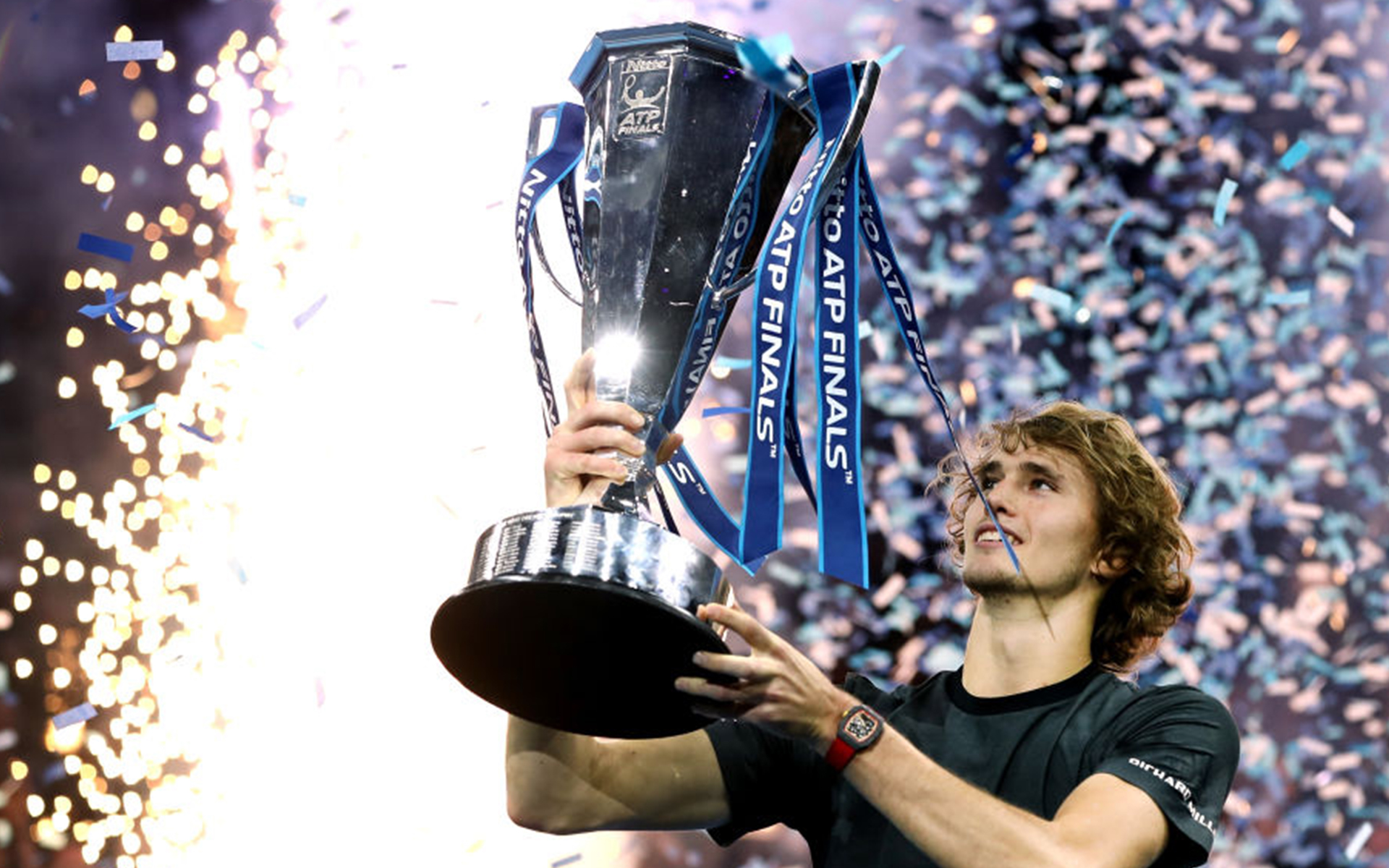
The season-ending Nitto ATP Finals begins at London’s O2 on Sunday with the eight best players of 2019 gunning for the title. The No 1 ranking is on the line between Rafael Nadal and Novak Djokovic while an unbeaten champion would win $2.871 million (£2.23 million). SIMON CAMBERS explains what we might expect over the eight days.
Start as you mean to go on
The chances are that anyone who has designs on emerging victorious is going to start in style by winning their opening round-robin match. In the past 20 years, the eventual champion has won their first match 16 times and each of the past nine winners have begun with a round-robin victory.
There are exceptions, of course, and a first-match defeat does not end a player’s chances of making the final. Four of the past 20 winners actually lost their opening match while four others lost their first match and bounced back to be beaten finalists.
In 2009, eventual winner Nikolay Davydenko and runner-up Juan Martin Del Potro both lost first time up. In 2005, David Nalbandian lost to Roger Federer in his opener but then beat the Swiss in the final. The same thing happened in 2000 when Gustavo Kuerten lost to Andre Agassi in his opener, only to recover and beat the American in the final.
Still, from 1999 onwards there’s a 60% chance that you won’t get to the final if you drop your first game.

Easy pickings in the group stages?
In 2018, 11 of the 12 round-robin matches were completed in straight sets, a show of strength from the higher-ranked players but not, perhaps, great value for the paying audience, in the arena or at home. In an era when Roger Federer, Rafael Nadal, Novak Djokovic and to a lesser extent, Andy Murray, have been so dominant, it’s probably no surprise they should come out on top in round-robin matches more often than not.
With the exception of 2017, when just four of the 12 round-robin matches were completed in straight sets, four of the past five years have seen a majority of straight-sets matches in round-robin competition. In that period, 42 of 60 round-robin matches have been done and dusted in two sets. In five of the past 10 years, more matches were won in straight sets than not but three times, more matches went the distance than not and in 2008 and 2012, it was a 6-6 split.
Don’t expect an epic final
Since 1998, when Alex Corretja came from two sets down to beat Carlos Moya in five sets in Hanover, the final has generally been a one-sided affair. The 2002 final, when Lleyton Hewitt beat Juan Carlos Ferrero in five sets, and 2005, when David Nalbandian came from two sets down to upset Roger Federer, remain outliers.
In fact, since 1999, only five finals out of 20 have gone the distance. The change from best of five sets to best of three in the final – implemented in 2007 – has merely emphasised the likelihood of a straight-sets win in the final. And in 14 of those finals, there was not even one tiebreak.
Winning a tournament coming in helps
Form is important in any tournament, but when the top eight of the year gather together, how important is a player’s recent ATP results?
Well, it depends which player we’re talking about. Between 2010 and 2016, the title went either to Novak Djokovic (4 times), Roger Federer (2) or Andy Murray (1). In each of those years, the winner had won at least one of their two events leading into the O2. For five of them, the winner had won the title on their most recent outing. In 2019, both Djokovic and Federer go into London having won their last event.
The exceptions come in the years when there was a surprise winner. In 2018, Sascha Zverev won the title in London having failed to get past the semis in his three events before the O2. In 2017, Grigor Dimitrov made just one final (losing it) in his three tournaments before taking the ATP Finals title. Finally, back in 2009, Nikolay Davydenko won the title in its first year in London despite his previous three events having read: first-round loss, semis defeat and second-round loss.
Simon Cambers is a freelance sports journalist & broadcaster, specialising in tennis. He has worked for the Guardian, ESPN, Reuters, The New York Times and others.


